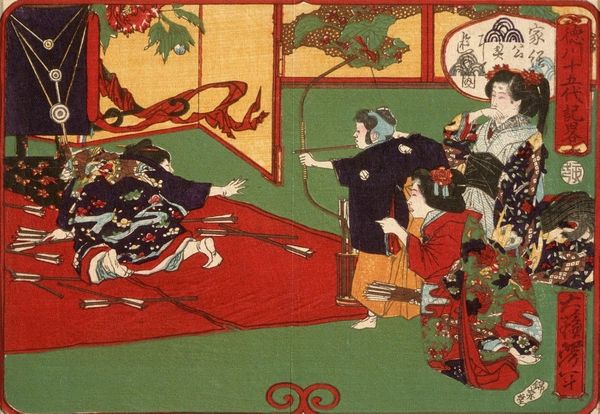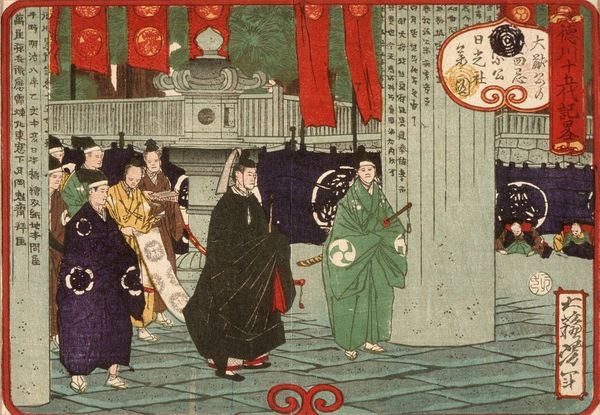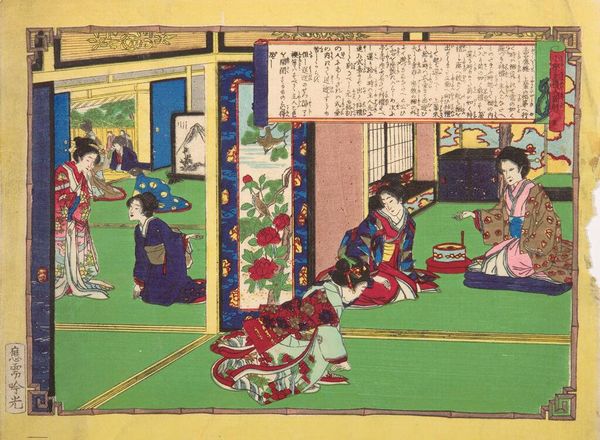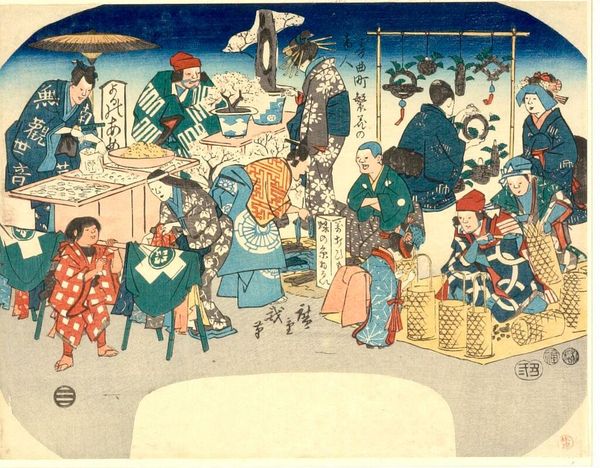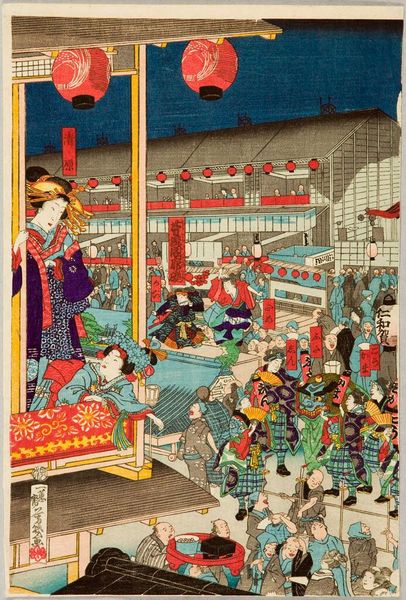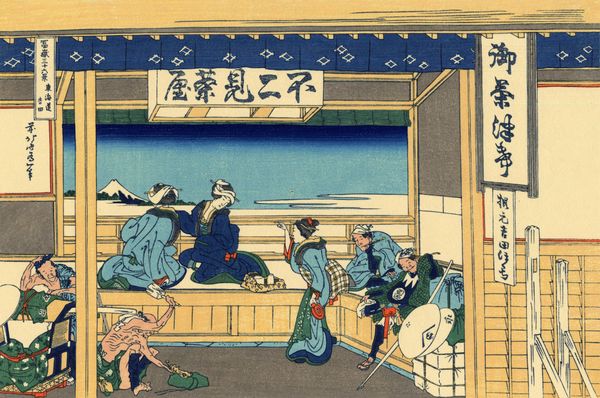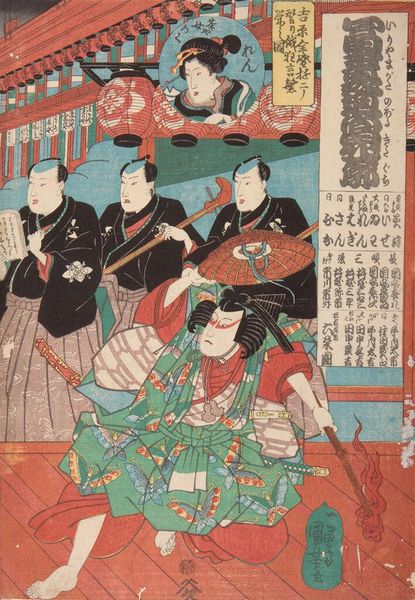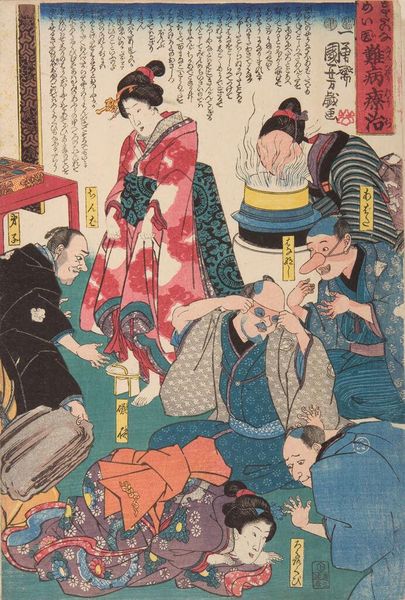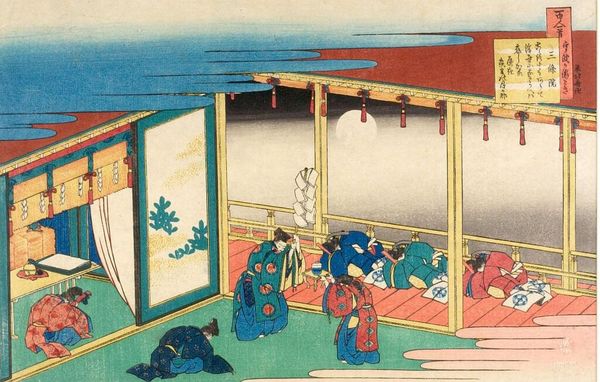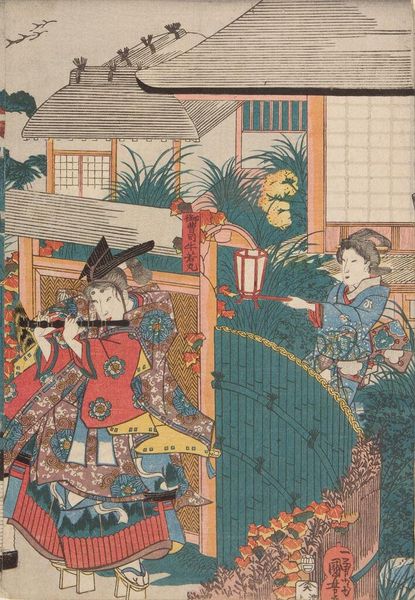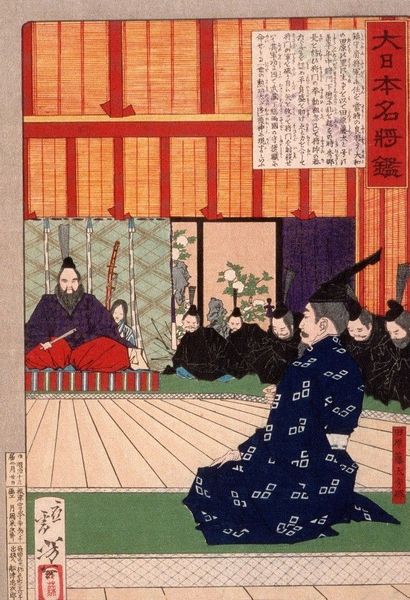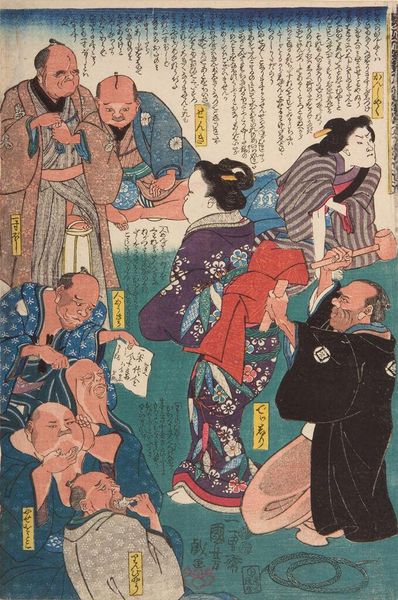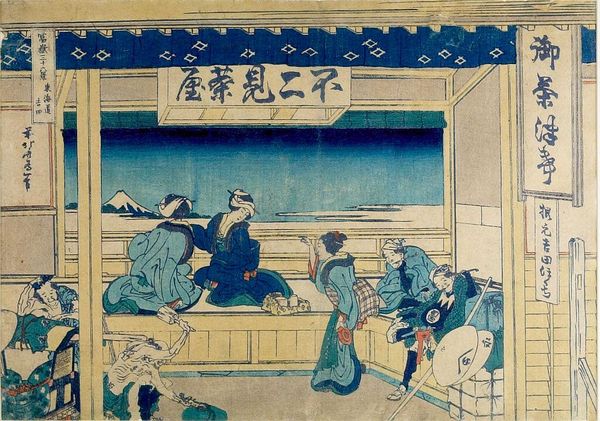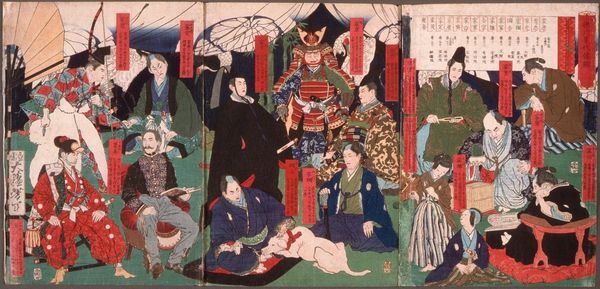
Copyright: Public Domain: Artvee
This is a woodblock print by Tsukioka Yoshitoshi, commemorating a Korean messenger's audience with Tokugawa Ienobu. Bowing, here, is not merely an act of respect. It is a potent symbol deeply embedded in East Asian culture, signifying deference, hierarchy, and diplomatic protocol. Consider the act of prostration in ancient Roman art, where conquered peoples were depicted kneeling before the emperor, a clear visual statement of power. Here, the repeated bowing gestures create a visual rhythm, emphasizing the structured nature of the diplomatic exchange. Yet, this gesture also evokes a sense of collective memory, reminding us of similar scenes throughout history where power dynamics are enacted through ritualized movements. The emotional weight of such gestures cannot be overstated. They speak to the complex interplay between individual agency and societal expectations. By observing the nuances of these bows, we gain a deeper understanding of how cultural memory shapes our understanding of power and submission. Symbols like this are far from static; they evolve, resurface, and take on new meanings across time.
Comments
No comments
Be the first to comment and join the conversation on the ultimate creative platform.
